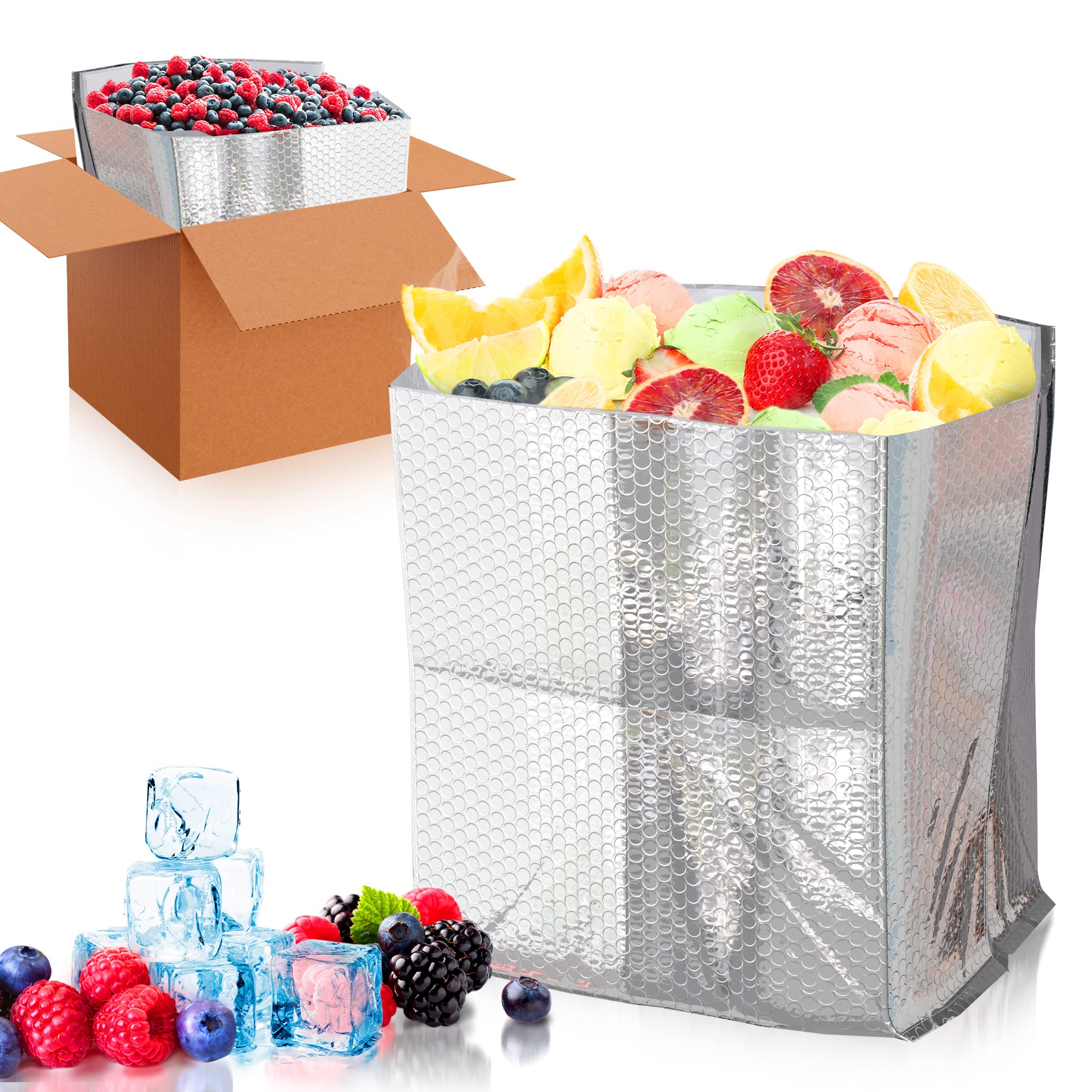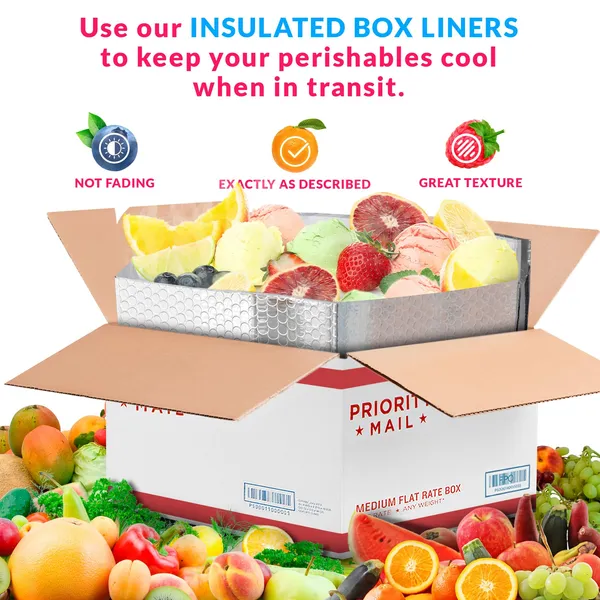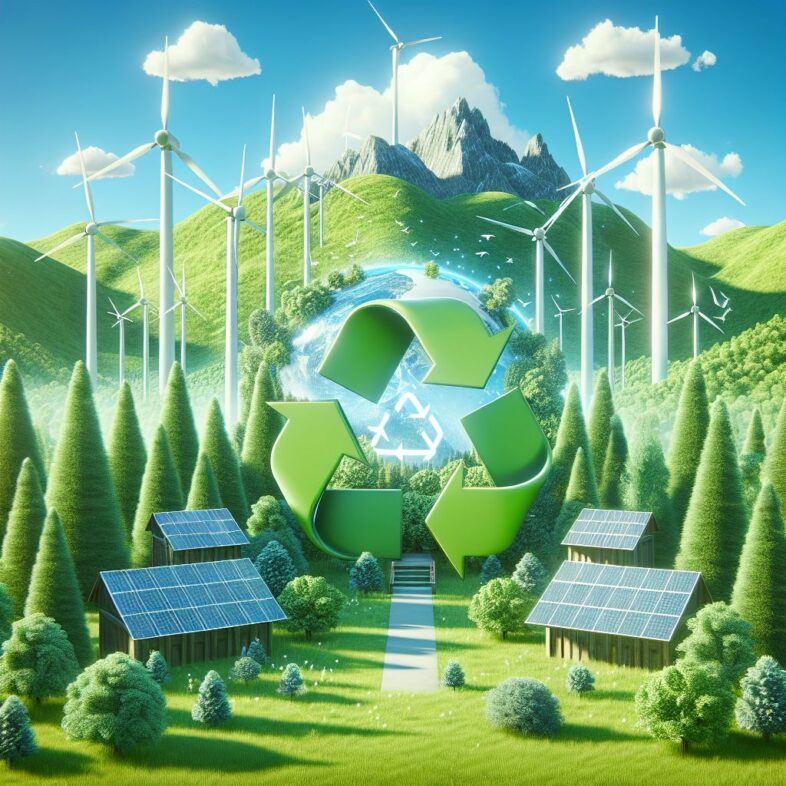The Positive Advantages of Using Insulated Box Liners for Shipping Food
Key Takeaways
- Eco-friendly insulated box liners help maintain the temperature of shipped food, reducing spoilage.
- These liners are often made from biodegradable materials, minimizing environmental impact.
- They are more space-efficient compared to traditional bulky packaging, saving storage and shipping costs.
- Businesses using eco-friendly liners can enhance their brand image as environmentally conscious.
- Adopting sustainable packaging solutions can lead to long-term cost savings and customer loyalty.
The Urgent Need for Eco-Friendly Shipping Solutions
In today's world, environmental sustainability is not just a trend; it's a necessity. That's where Eco-friendly Insulated Box Liners come in. With the rise in global shipping, especially in the food industry, the need for eco-friendly solutions has never been more critical. The use of traditional packaging materials, like Styrofoam, poses significant environmental threats. They contribute to landfill waste and are not biodegradable, which means they remain in the environment for centuries.
Eco-friendly insulated box liners present a viable solution. They are designed to maintain the temperature of perishable goods during transit, ensuring that food arrives fresh and safe for consumption. More importantly, these liners are crafted from sustainable materials, reducing the carbon footprint of shipping operations.
Besides that, eco-friendly packaging aligns with consumer expectations. Today's consumers are more informed and conscious about the environmental impact of their purchases. They prefer brands that prioritize sustainability and are willing to support businesses that make eco-friendly choices.
Current Environmental Concerns
The environmental impact of traditional packaging materials is alarming. According to recent studies, the packaging industry is responsible for a significant percentage of the world's plastic waste. Most of this waste ends up in landfills or, worse, in oceans, posing threats to marine life and ecosystems.
Moreover, the production and disposal of non-biodegradable materials contribute to greenhouse gas emissions, accelerating climate change. The need to address these concerns is urgent, and businesses play a pivotal role in driving this change.

“Pack Silver Foil Eco-friendly Insulated Box Liners …” from www.amazon.com and used with no modifications.
Traditional Insulation Drawbacks
Traditional insulation materials, such as expanded polystyrene (EPS), have been widely used for their insulating properties. However, they come with several drawbacks. Firstly, EPS is non-biodegradable, meaning it doesn't break down naturally and contributes to long-term environmental pollution.
Additionally, the production of EPS involves the use of toxic chemicals that can harm both the environment and human health. Its bulky nature also means higher transportation costs and more storage space, making it less efficient for businesses.
The Growing Demand for Sustainability
The demand for sustainable solutions is growing rapidly. Consumers are becoming more aware of the environmental impact of their choices and are seeking out products that are eco-friendly. This shift in consumer behavior is pushing businesses to adopt sustainable practices.
For businesses in the food shipping industry, this means exploring alternatives to traditional packaging. Eco-friendly insulated box liners offer a practical and effective solution. By investing in sustainable packaging, companies can not only reduce their environmental impact but also attract environmentally conscious consumers.
How Eco-Friendly Insulated Box Liners Work
Eco-friendly insulated box liners are designed to protect temperature-sensitive goods during shipping. They work by providing a thermal barrier that maintains the desired temperature inside the packaging, ensuring that food remains fresh and safe.
Material Composition and Biodegradability
The materials used in eco-friendly insulated box liners are key to their sustainability. Many liners are made from biodegradable materials such as recycled paper or plant-based fibers. These materials are not only effective in providing insulation but also break down naturally, reducing environmental impact.
For instance, some liners use cotton-based panels wrapped in bio-based film, offering both insulation and biodegradability. This means that once the liner has served its purpose, it can be disposed of without harming the environment.

“Silver Foil IEco-friendly Insulated Box Liners …” from www.doba.com and used with no modifications.
Thermal Insulation Efficiency
Despite being eco-friendly, these liners do not compromise on performance. They are designed to provide excellent thermal insulation, keeping the contents at a consistent temperature throughout the shipping process. This is crucial for the food industry, where maintaining the cold chain is essential for food safety.
Innovations in material science have allowed for the development of liners that are both thin and highly efficient. This means that businesses can achieve the same level of insulation as traditional materials, without the associated environmental drawbacks. For more information on sustainable options, check out environmentally friendly insulated packaging solutions.
Performance Compared to Traditional Packaging
When compared to traditional packaging solutions, eco-friendly insulated box liners offer several advantages. They are more space-efficient, as they can be collapsed and compressed, reducing storage and shipping costs. This makes them an attractive option for businesses looking to optimize their operations.
Moreover, these liners provide a competitive edge by aligning with consumer preferences for sustainable products. By choosing eco-friendly packaging, businesses can enhance their brand image and appeal to a broader audience.
Environmental Impact Reduction
Eco-friendly insulated box liners significantly reduce the environmental impact associated with traditional packaging materials. By utilizing biodegradable and recyclable materials, these liners help decrease the amount of waste that ends up in landfills and oceans. This shift not only benefits the environment but also aligns with global efforts to combat climate change.
Furthermore, the production of eco-friendly liners often involves less energy consumption and fewer harmful emissions compared to conventional packaging materials. This means that businesses can contribute to a more sustainable future while maintaining their operational efficiency.
- Biodegradable materials reduce landfill waste.
- Recyclable components support a circular economy.
- Lower energy consumption in production reduces carbon footprint.
By adopting eco-friendly insulated box liners, businesses can play a crucial role in reducing their overall environmental impact and setting a positive example for other industries to follow. For instance, initiatives like green energy in Scotland demonstrate the potential of sustainable practices in reducing carbon emissions.
Cost-Effectiveness and Space Efficiency
One of the standout features of eco-friendly insulated box liners is their cost-effectiveness. Although the initial investment may be slightly higher than traditional materials, the long-term savings are substantial. These liners are lightweight and collapsible, meaning they require less space for storage and transportation. This translates to reduced shipping costs and lower storage expenses for businesses.
Additionally, by minimizing the need for bulky packaging, companies can optimize their supply chain and improve overall efficiency. This not only leads to financial savings but also enhances the sustainability of their operations.
Improvement in Shipping Quality and Safety
Eco-friendly insulated box liners offer enhanced protection for temperature-sensitive goods, ensuring that they reach their destination in optimal condition. This is particularly important for the food industry, where maintaining product integrity is crucial for consumer safety and satisfaction.
For example, a company shipping gourmet chocolates across the country might face challenges in maintaining the right temperature during transit. By using eco-friendly liners, they can ensure that the chocolates remain at the ideal temperature, preserving their quality and taste.
“Our switch to eco-friendly insulated box liners has not only improved our shipping efficiency but also enhanced the quality of our products upon arrival. Our customers have noticed the difference.” – A local artisan chocolate company
This improvement in shipping quality and safety can lead to increased customer satisfaction and loyalty, providing a competitive edge in the marketplace. Companies in regions like Scotland are also making strides with green energy initiatives, further enhancing their sustainable practices.
Practical Applications in the Food Industry
The food industry, with its strict regulations and high standards for product safety, stands to benefit immensely from the adoption of eco-friendly insulated box liners. These liners provide the necessary thermal protection for a wide range of perishable goods, from fresh produce to frozen meals.
By maintaining the cold chain throughout the shipping process, businesses can ensure that their products arrive fresh and ready for consumption. This is particularly important for companies shipping perishable goods over long distances, where temperature fluctuations can compromise product quality.
Case Studies of Successful Implementation
Several companies have successfully implemented eco-friendly insulated box liners in their operations, yielding positive results. One notable example is a seafood distributor that ships fresh fish across the country. By switching to biodegradable liners, they were able to reduce their environmental impact while maintaining product freshness. For those interested in sustainable practices, exploring alternative materials for eco-friendly solutions can provide further insights.
Another example is a meal kit delivery service that adopted eco-friendly packaging to align with their brand's sustainability mission. The switch not only improved their environmental credentials but also attracted a new segment of eco-conscious consumers.
These case studies demonstrate the tangible benefits of adopting sustainable packaging solutions and highlight the potential for positive change within the industry.
“Our transition to eco-friendly packaging has been a game-changer. We've seen a 20% increase in customer satisfaction and a noticeable reduction in our carbon footprint.” – A meal kit delivery service
Different Food Products and Shipping Requirements
Different food products have varying shipping requirements, and eco-friendly insulated box liners can be tailored to meet these specific needs. For instance, fresh produce requires a consistent temperature to prevent spoilage, while frozen foods need to remain below a certain threshold to maintain their integrity.
By customizing the thickness and material composition of the liners, businesses can ensure that their products receive the appropriate level of insulation. This flexibility allows companies to cater to a wide range of products, enhancing their ability to meet diverse consumer demands.
Consumer and Business Perspectives
From a consumer perspective, the use of eco-friendly packaging is often seen as a reflection of a brand's values and commitment to sustainability. Consumers are more likely to support businesses that prioritize environmental responsibility, making sustainable packaging a powerful marketing tool.
For businesses, the adoption of eco-friendly insulated box liners represents an opportunity to differentiate themselves in a competitive market. By demonstrating a commitment to sustainability, companies can build stronger relationships with their customers and foster brand loyalty.
Future Trends and Innovations in Sustainable Packaging
As the demand for sustainable packaging solutions continues to grow, new trends and innovations are emerging within the industry. These advancements are driven by a combination of consumer demand, regulatory pressures, and technological progress.
Advancements in Material Science
Material science is at the forefront of sustainable packaging innovation. Researchers are developing new materials that offer enhanced insulation properties while being fully biodegradable. These advancements promise to make eco-friendly insulated box liners even more effective and accessible. Learn more about different types of clean energy contributing to these innovations.
For instance, the use of nanotechnology in material design is opening up new possibilities for creating ultra-thin yet highly efficient insulation layers. This not only improves the performance of the liners but also reduces material usage, further enhancing their sustainability.
Regulatory Influences and Market Trends
Regulatory pressures are increasingly shaping the packaging industry. Governments around the world are implementing stricter regulations to reduce plastic waste and encourage sustainable practices. These regulations are driving companies to seek out eco-friendly alternatives like insulated box liners. As a result, businesses that adopt these solutions early can gain a competitive advantage and ensure compliance with future regulations.
Market trends also indicate a growing preference for sustainable packaging. Consumers are more aware of environmental issues and are choosing brands that align with their values. This shift in consumer behavior is encouraging companies to innovate and invest in sustainable packaging solutions to meet the demands of their customers.
Potential for Industry Transformation
The adoption of eco-friendly insulated box liners has the potential to transform the packaging industry. As more businesses recognize the benefits of sustainable packaging, we can expect a significant shift away from traditional materials. This transformation will not only reduce environmental impact but also drive innovation and growth within the industry.
Companies that embrace eco-friendly packaging solutions will be better positioned to lead the market and set new standards for sustainability. By prioritizing sustainability and using insulated box liners for shipping food, businesses can build a more resilient and future-proof supply chain, ensuring long-term success in a rapidly changing world.
Final Thoughts on Adopting Eco-friendly Solutions
Adopting eco-friendly insulated box liners is a strategic decision that offers numerous benefits for businesses and the environment. By choosing sustainable packaging, companies can reduce their carbon footprint, enhance their brand image, and improve customer satisfaction.
While the transition to eco-friendly packaging may require an initial investment, the long-term savings and positive impact on the environment make it a worthwhile endeavor. Businesses that prioritize sustainability are not only contributing to a healthier planet but also positioning themselves for success in a competitive market. For instance, the adoption of green energy initiatives can significantly enhance a company's eco-friendly efforts.
As we move towards a more sustainable future, it's crucial for businesses to embrace eco-friendly solutions like insulated box Liners for shipping food and lead the charge in environmental responsibility. By doing so, they can inspire others to follow suit and drive meaningful change within the industry. For instance, exploring solar panel installation can be a significant step towards sustainability.
Frequently Asked Questions (FAQ)
For those considering the switch to eco-friendly insulated box liners, here are some frequently asked questions to help guide your decision:
1. What materials are used in eco-friendly insulated box liners?
Eco-friendly insulated box liners are typically made from biodegradable materials such as recycled paper, plant-based fibers, or cotton-based panels wrapped in bio-based film. These materials are designed to provide effective insulation while minimizing environmental impact. For more information on sustainable practices, check out different types of clean energy.
By using sustainable materials, these liners help reduce landfill waste and support a circular economy, contributing to a more sustainable future.
2. How effective are these liners in maintaining temperature?
Eco-friendly insulated box liners are highly effective in maintaining temperature, ensuring that perishable goods remain fresh and safe during transit. Innovations in material science have allowed for the development of liners that offer excellent thermal insulation without compromising on sustainability.
3. Can these liners be recycled easily?
- Many eco-friendly liners are designed to be recyclable, supporting a circular economy.
- It's important to check the specific recycling guidelines for the materials used in the liners.
- Proper disposal and recycling can further reduce environmental impact.
By choosing recyclable liners, businesses can contribute to waste reduction and promote sustainable practices.
4. Are these solutions cost-effective for small businesses?
While the initial cost of eco-friendly insulated box liners may be higher than traditional materials, the long-term savings in storage, transportation, and environmental impact make them a cost-effective choice. Additionally, businesses can benefit from enhanced brand image and customer loyalty by adopting sustainable packaging such as insulated box liners for shipping food.
5. What are future advancements expected in the field of Insulated Box Liners for Shipping Food?
Future advancements in eco-friendly sustainable packaging are likely to focus on improving material efficiency, reducing costs, and enhancing performance. Innovations in material science, such as the use of nanotechnology, promise to make eco-friendly liners even more effective and accessible.
As consumer demand for sustainable products continues to grow, we can expect ongoing developments in this field, driving further transformation within the packaging industry.
In conclusion, the impact of eco-friendly insulated box liners for shipping food is significant. By adopting these solutions, businesses can reduce their environmental footprint, enhance their brand reputation, and contribute to a more sustainable future.




